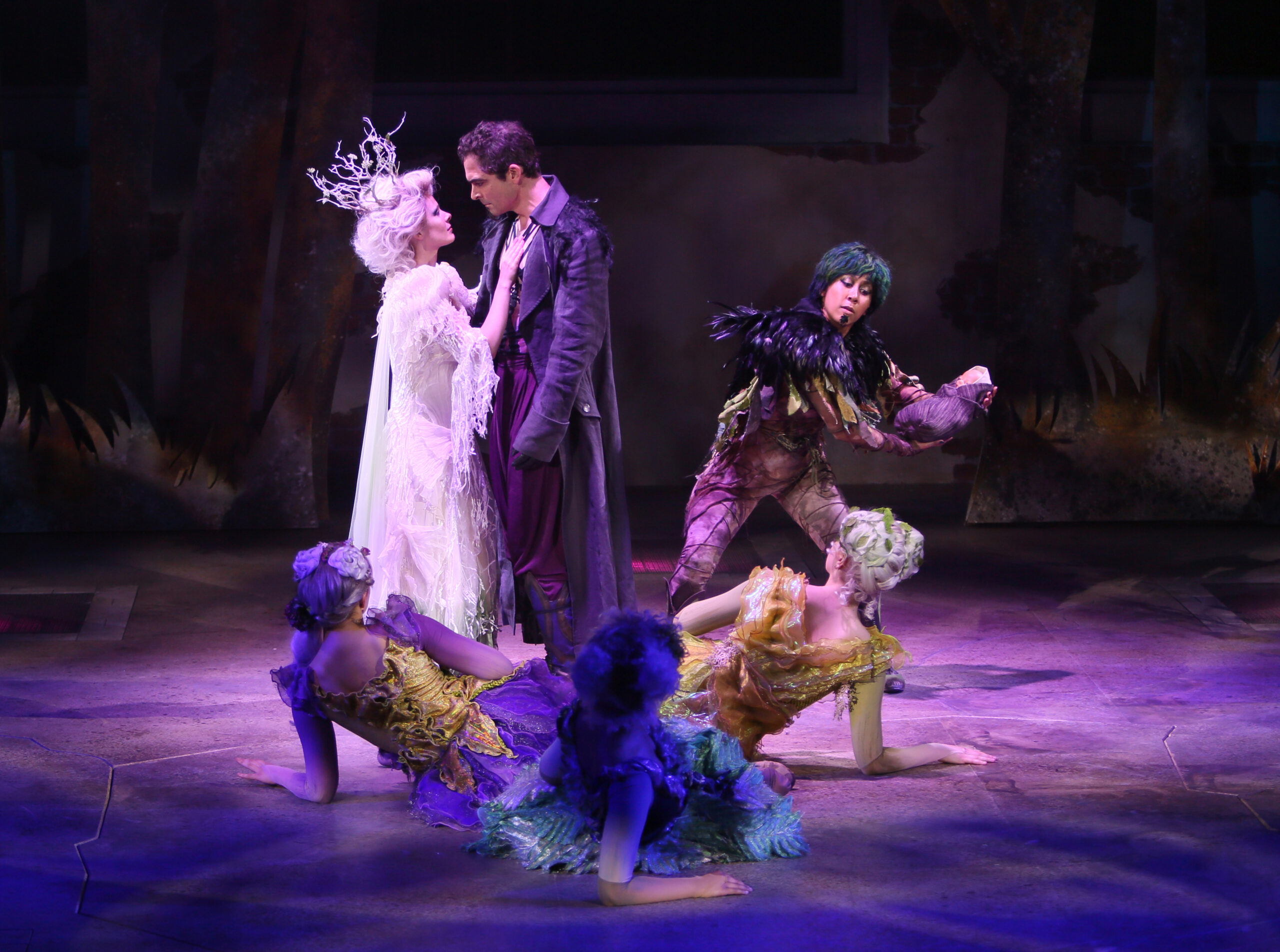
“And then they woke up” is perhaps the most unholy way to end a story, and thankfully Shakespeare would never do that to an audience—he respects us too much. In his beloved comedy, “A Midsummer Night’s Dream”, something more important happens (though the characters literally do wake up at the end, of course).
After a two-year hiatus, Bard on the Beach offers a Dream of such splendour and beauty it reminds us of why we bother with this life at all. A live performance-starved audience basked in the shimmer of the show, wide-eyed, breathless with laughter throughout. This was more than escapist glee. This Dream was life-affirming.
From grandiose set design by Amir Ofek (imagine a stone and brick castle-cum-courtyard with massive windows framing a sun setting over False Creek; a magical forest; a human sized, suspended nest) to Christine Reimer’s fantastical costumes (genuinely creepy goblins; Oberon’s transportive towering tree disguise), the magic within the play comes to life.
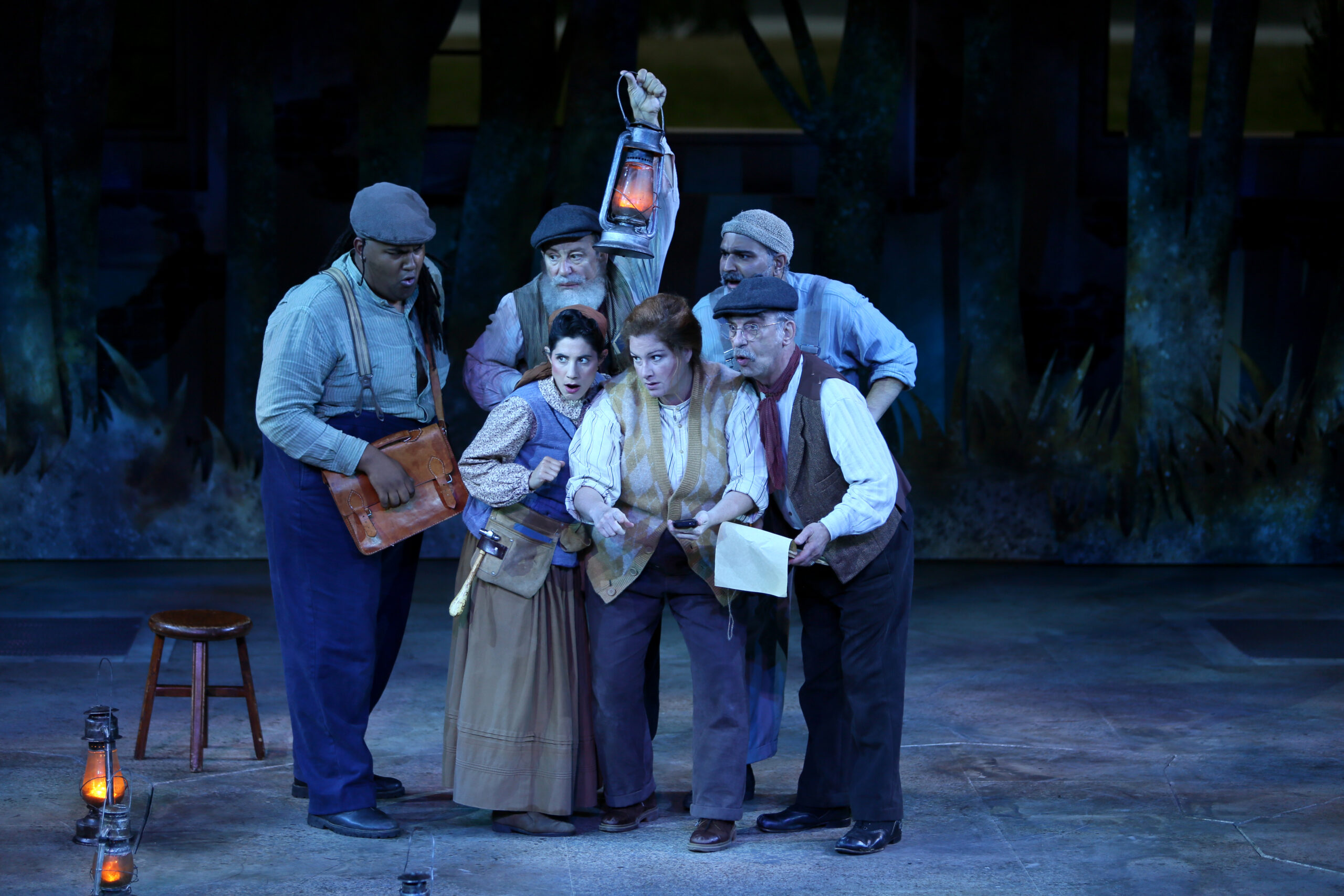
The story is funny and complex and magical, about control and love and desire. It questions reality. The delineation between Dream and what is real is ambiguous, a liminal space where the market of love and magic deals. In the human realm, a classic problem: a woman’s lover is not good enough in the eyes of her father, who has a better suitor in mind. Then, a love rectangle devolves into a (superbly choreographed) fight.
The vengeful fairy king Oberon (Billy Marchenski is entrancing) sics his spritely servant, Puck (Sarah Roa), on his heartbreaker, Titania (an unexpectedly fierce Kate Besworth), with a magical nectar that is snuck into sleeping eyes; victims wake up and fall hopelessly in love with whomever they first lay eyes on. Mistakes abound.
As a first-time Barder and writer tasked to review A Midsummer Night’s Dream, I was both excited and intimidated. Without the aid of side-by-side translations á la my high school English classes, I risked churning out a write-up with keen observations, maybe, but no connections. Thankfully, stage performances are never spoiled by knowing the story (or even the ending).
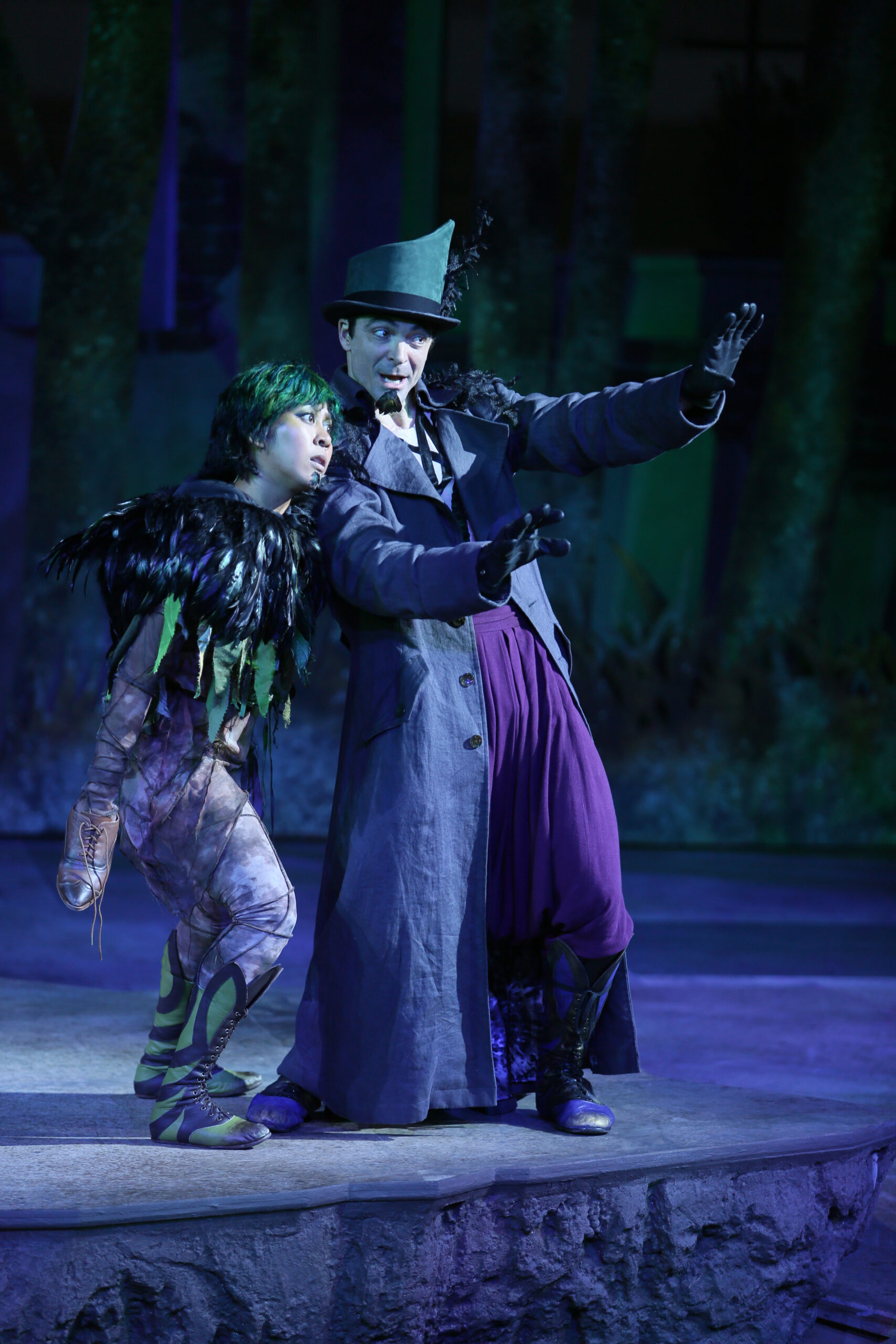
If you fancy seeing a time-tested comedy and are hesitant about confronting Early Middle English from a playwright who had a vocabulary four times greater than that of the average person, consider my advice.
Read the summary—a few times—before the show. Ensure your date is an English teacher who has studied and taught this particular play many, many times, and can translate especially decorated lines, or patiently get you up to speed after you become transfixed by the sparkly costumes and Puck’s feathered hood—which you will swear is alive—and miss a line or two.
Don’t be shy. Politely tell your date to shut up if they whisper something interesting to you—like the fact that the uproarious Bottom is historically a he/him, or that the original script portrays Lysander and Hermia as a straight couple—just because your date has all the lines memorized doesn’t mean you aren’t hanging onto every syllable to keep up. (Again, be polite about it, because this is information you will be grateful to know later, when you struggle to write your review.)
If you don’t have one such date on hand then not to worry. Bottom, played by Carly Street, is reason alone to see Dream. Bottom is a tradesworker rehearsing for a play within the play, and she wants to hog the limelight by performing every part. Street honours Shakespeare’s ingenious vocab—“… I will move storms, I will condole in some measure … yet my chief humour is for a tyrant …” but sneaks in a literal translation here, adds, like, colloquial fillers there. Her range of voice and comic physicality are a hoot.
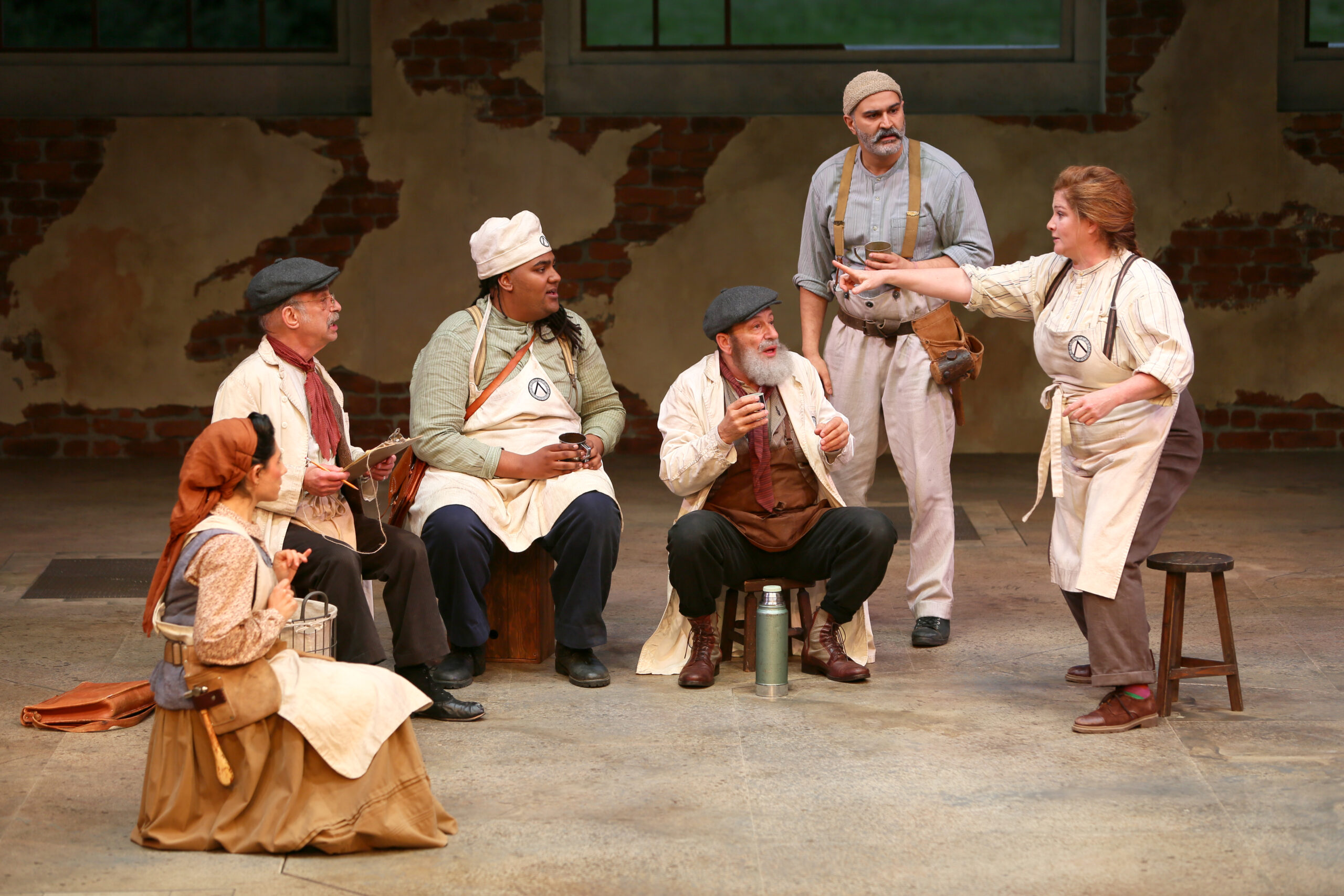
“Meta” could describe her performance, as Bottom’s wish to be the centre of attention does become Street’s fate; she steals the show. Some reviewers critiqued her for dominating the stage, which only suggests that she did, in fact, play the part pretty damn well.
Emily Dallas shines as obsessive lover Helena, while Heidi Damayo’s Hermia is a little underwhelming. Demetrius (Christopher Allan) is dynamic and Lysander (Olivia Hutt) is a subtle force. The play within the play might be the best part of the show, as Snout (Isaac George-Hotchkiss), Flute (Munish Sharma), Snug (Advah Soudack), and Peter Quince (Richard Newman) each elevate the performance with unique talent.
Even as certain themes—the oppression of women, for example—are unfortunately relevant, director Scott Bellis has tweaked details of the script to speak to the moment further. The play is set in the 1920s, and though this period is only portrayed through outfits and hairstyles, it propels the story a little closer to home. One hundred years on, the 20s of this century aren’t quite roaring but aren’t all that dissimilar, either. War, natural disasters, famines, epidemics. It’s appropriate then, that over the course of the play, as the magical forest realm and the real world of the increasingly chaotic lovers become entangled, the characters’ prim skirts and proper slacks and generally put-together selves become dishevelled, undone. John Gardner explains a story as a dream the writer invites the audience into, and the dream must be vivid and continuous. Never does this Dream break; even when that stubborn membrane between performer and audience the fourth wall—is ruptured, disbelief is not suspended; rather, the line between Dream and reality blurs further. Even after order is restored, order is arrived at through …magic. And dreams.
Through mistakes, even.
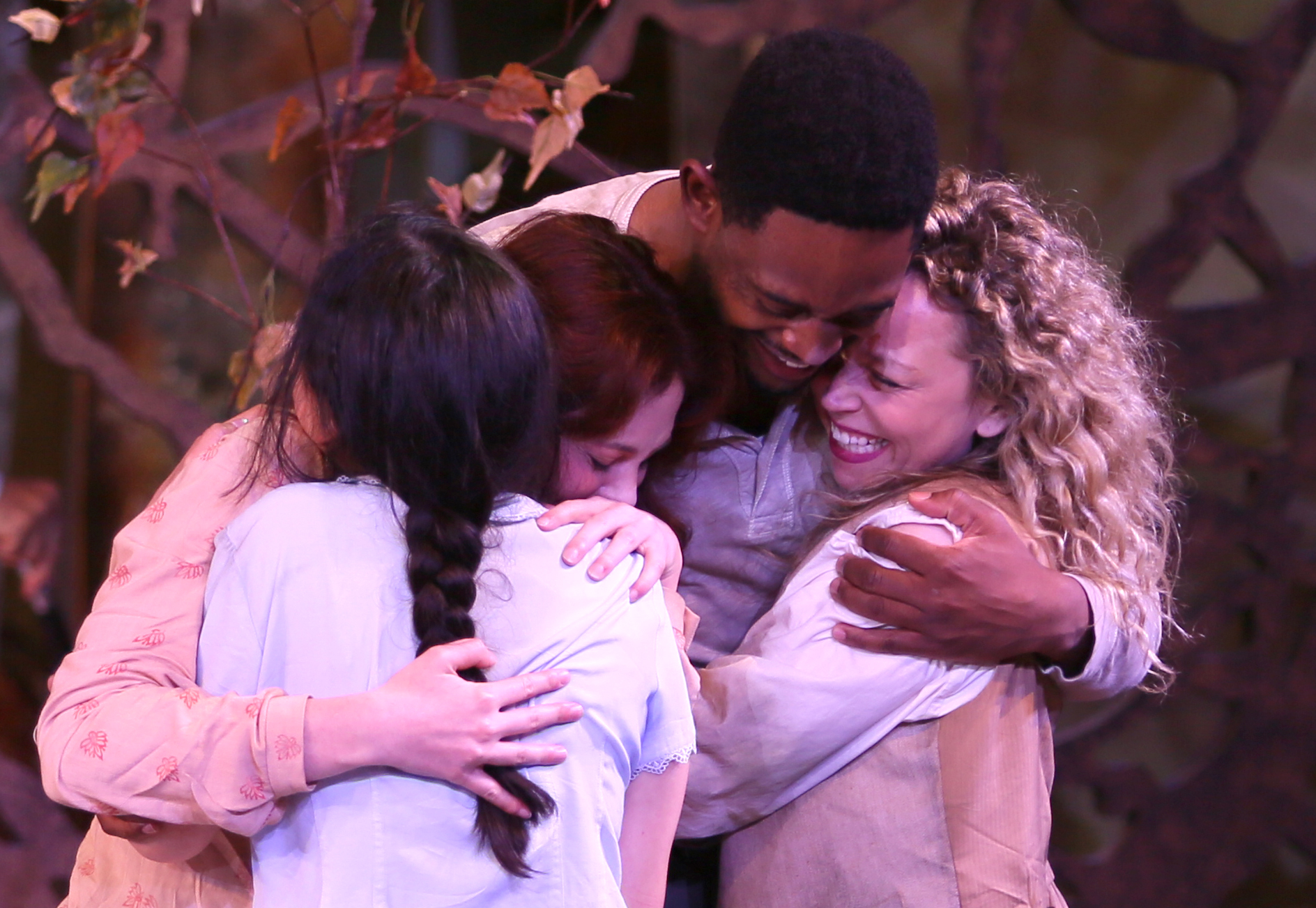
In the final act—just before a standing ovation—the crowd is offered a choice. The mischievous Puck says, “If we shadows have offended / Think but this and all is mended / That you have but slumb’red here / While these visions did appear.” In other words (my lesser ones), if you didn’t like the show, pretend it was all a dream.
Do we leave the evening behind, a glittering memory that will fade in the harsh daylight of tomorrow’s news? Or do we let the magic absorb into our skin, and wake with us in the morning? If it’s true that it is the art that remains when civilizations collapse, I will live the Dream.
– Dayna Mahannah
